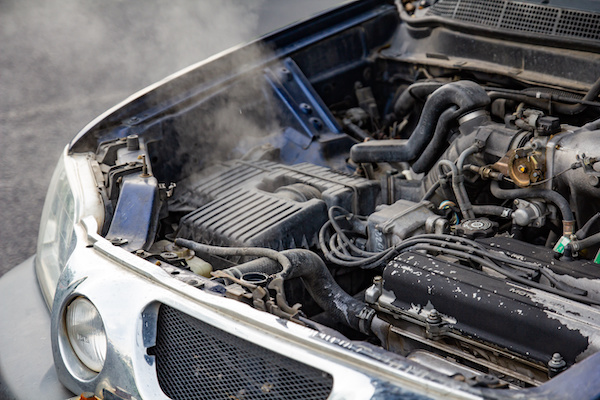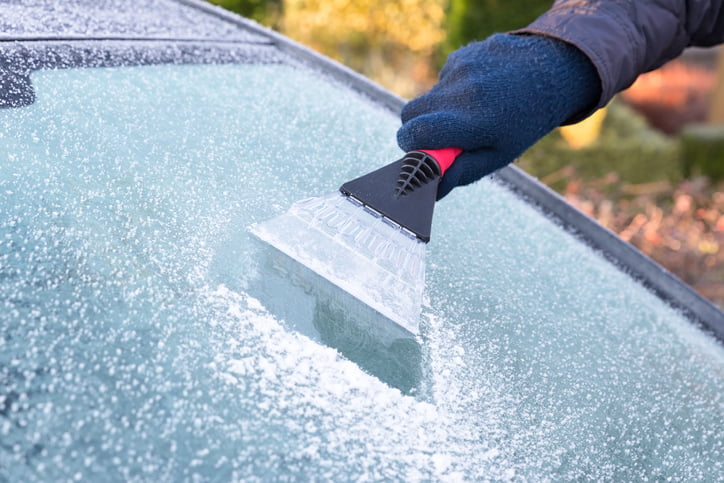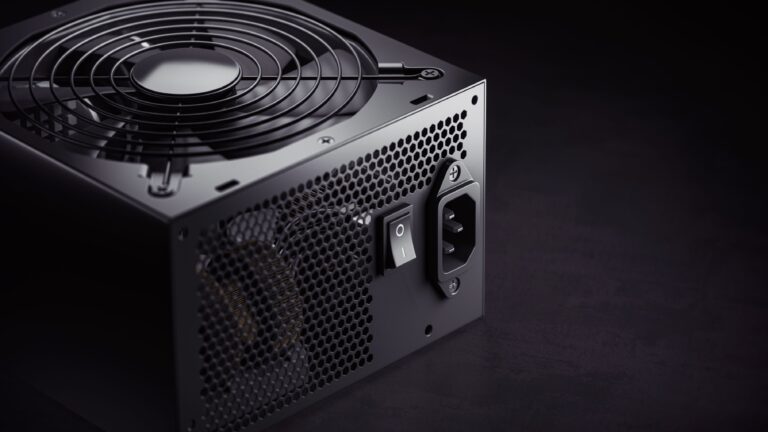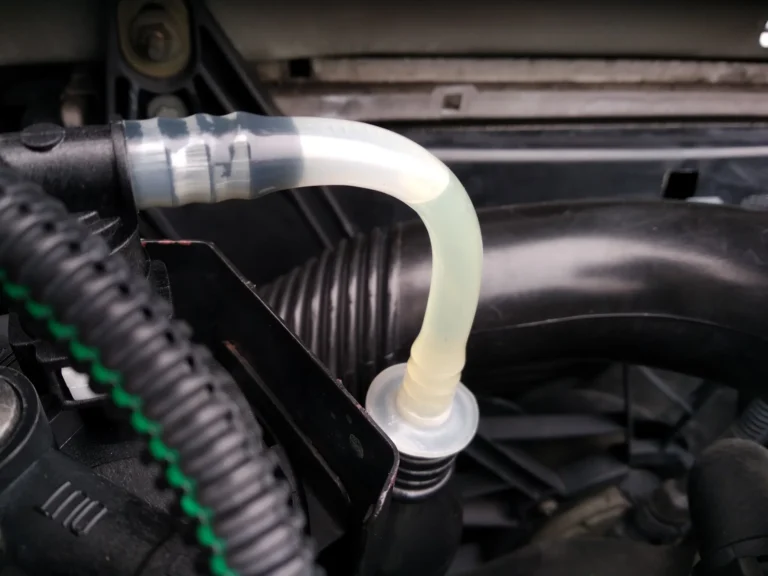How Long Can A Car Overheat Before Damage?
The duration a car can overheat before sustaining damage varies. In general, immediate action is crucial. Prolonged overheating, lasting more than a few minutes, can lead to severe engine damage. Factors such as the cause of overheating, driving conditions, and the efficiency of the cooling system influence the timeframe.
Quick response within minutes to an hour can prevent extensive damage, but every situation is unique. It’s essential to address overheating promptly, allowing the engine to cool and seeking professional assistance if necessary to avoid long-term and costly damage.
What Are The Causes Of Car Overheating?
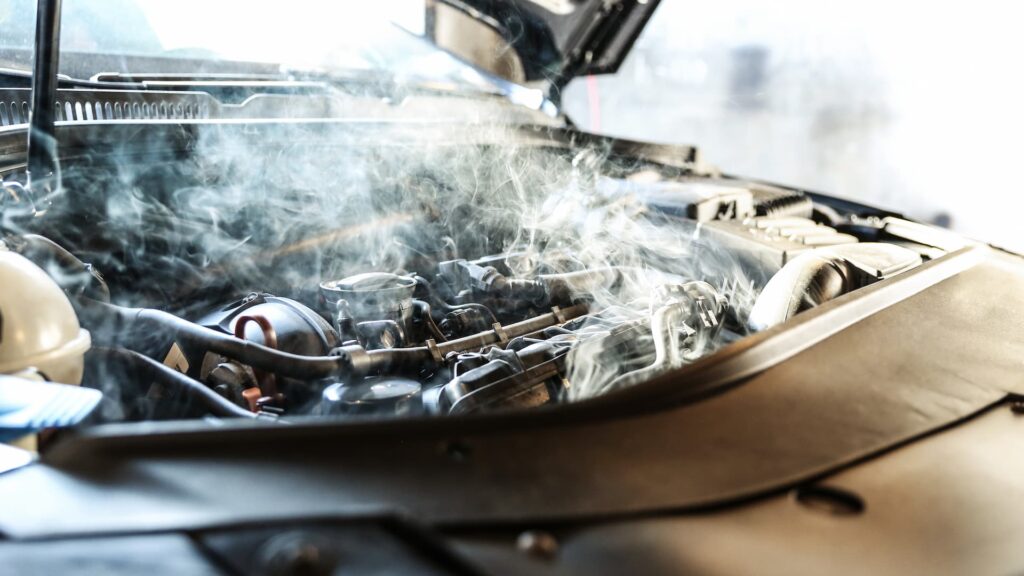
Car overheating can be attributed to various factors, and it often results from issues within the vehicle’s cooling system. Here are the primary causes of car overheating
Low Coolant Levels
Insufficient coolant levels can occur due to leaks, evaporation, or neglecting regular coolant checks. Coolant is essential for regulating engine temperature, and insufficient levels can lead to overheating.
Malfunctioning Thermostat
The thermostat regulates the flow of coolant through the engine. A malfunctioning thermostat may get stuck closed, limiting coolant circulation, or stuck open, causing the engine to run too cool. Both scenarios can lead to overheating.
Radiator Issues
Radiator problems, such as leaks or a malfunctioning cooling fan, can compromise the cooling system’s efficiency. A damaged radiator can result in insufficient heat dissipation, leading to overheating.
Coolant Leaks
Leaks in the cooling system can occur in various components, including hoses, the radiator, and the water pump. These leaks result in a loss of coolant, reducing the system’s ability to regulate temperature and leading to overheating.
Faulty Water Pump
The water pump is responsible for circulating coolant through the engine. If the water pump malfunctions, coolant circulation becomes inefficient, and the engine may overheat as a result.
Clogged Radiator
Debris, sediment, or mineral deposits can accumulate in the radiator over time, hindering the flow of coolant. A clogged radiator reduces the system’s ability to dissipate heat, leading to overheating.
Cooling Fan Issues
The cooling fan assists in dissipating heat from the radiator. Malfunctions in the fan, such as a failing motor or damaged blades, can result in inadequate cooling and contribute to engine overheating.
Faulty Head Gasket
The head gasket seals the cylinder head to the engine block. If the head gasket fails, it can allow coolant to mix with oil or combustion gases, leading to overheating and potential engine damage.
Serpentine Belt Issues
The serpentine belt drives crucial engine components, including the water pump. If the belt slips or breaks, the water pump won’t function correctly, leading to reduced coolant circulation and overheating.
Engine Oil Issues
Insufficient or degraded engine oil can result in increased friction and heat within the engine, contributing to overheating. Regular oil changes and proper oil level maintenance are essential for preventing this issue.
Excessive Load or Stress
Driving conditions that put additional stress on the engine, such as towing heavy loads or navigating steep terrain, can lead to increased heat generation and potential overheating.
Coolant Mixture Problems
Using the wrong coolant mixture or neglecting regular coolant replacement can compromise the coolant’s ability to regulate temperature, impacting the cooling system’s efficiency and leading to overheating.
What are the consequences of engine overheating?

Engine overheating can have various consequences, ranging from immediate impacts on performance to long-term damage to critical components. Here are the key consequences of engine overheating
Immediate Impact on Engine Performance
Reduced Power Output: Overheating triggers the engine control module to limit power output, leading to reduced performance.
Poor Fuel Efficiency: Inefficient combustion at higher temperatures can result in increased fuel consumption.
Engine Misfires: Elevated temperatures can affect ignition components, leading to misfires and a rough running engine.
Long-Term Damage to Engine Components
Cylinder Head and Gasket Damage: Overheating can cause the cylinder head to warp or crack and damage the head gasket, leading to coolant leaks and compromised compression.
Piston and Ring Damage: Excessive heat can cause pistons to expand, resulting in scuffing and increased wear on cylinder walls.
Engine Block Damage: Prolonged overheating may lead to engine block cracks, requiring extensive repairs or even engine replacement.
Seized Engine: In extreme cases, overheating can lead to engine seizure, where moving parts become immobile due to heat and friction.
Effects on Other Vehicle Systems
Transmission Damage: Elevated temperatures can affect transmission fluid, leading to reduced lubrication and potential transmission failure.
Head Gasket Failure: Overheating stresses the head gasket, and failure can result in coolant leaks, oil contamination, and compromised engine performance.
Damage to Sensors and Electronics: High temperatures can damage sensors and electronic components, impacting various systems like the engine control module (ECM) and emission control systems.
Financial Implications:
Expensive Repairs: Addressing damage caused by overheating can be costly, especially if it involves major components like the cylinder head, pistons, or engine block.
Towing Costs: A severely overheated engine might require towing to a repair facility, incurring additional expenses.
Reduced Resale Value: A history of engine overheating can decrease the resale value of a vehicle, as potential buyers may be hesitant due to concerns about potential long-term damage.
Potential Engine Replacement: Severe and irreparable damage may necessitate a complete engine replacement, which is a significant financial burden.
Fluid Contamination
Coolant Contamination: Overheating can cause the breakdown of coolant additives, leading to contamination. This can result in corrosion and damage to the cooling system.
Oil Contamination: In cases of head gasket failure, coolant and oil may mix, compromising the lubricating properties of the engine oil.
Reduced Engine Longevity
Prolonged exposure to high temperatures accelerates wear and tear on engine components, reducing overall engine lifespan.
Safety Risks
Overheating can lead to unexpected breakdowns, posing safety risks, especially in traffic or adverse driving conditions.
How Long Can a Car Overheat Before Damage Occurs?
The time sensitivity of an overheating car depends on several factors, and the duration before damage can vary. The cooling system is designed to manage heat, but prolonged exposure to high temperatures can lead to irreversible damage.
- Immediate action is crucial when a car begins to overheat to prevent severe damage.
- The severity of damage depends on the underlying cause of overheating and how quickly it is addressed.
Factors Influencing the Duration Before Damage
Cooling System Efficiency
A well-maintained and efficient cooling system can manage heat more effectively, potentially providing more time before serious damage occurs.
Underlying Cause of Overheating
The specific cause of overheating, such as low coolant levels, a malfunctioning thermostat, or a radiator issue, influences the rate at which damage occurs.
Driving Conditions
Factors like high ambient temperatures, heavy traffic, or towing heavy loads can accelerate the overheating process and reduce the time before damage.
Engine Design
Different engines have varying tolerances to heat, and the materials used in the engine components play a role in determining how quickly damage occurs.
Coolant Mixture
The composition of the coolant mixture affects its boiling point and heat dissipation capabilities, impacting the time before damage.
General Timeframes for Various Scenarios (e.g., minutes, hours)
Immediate Response (Minutes)
If the overheating is severe and caused by a sudden issue like a coolant leak or a broken belt, immediate action within minutes is crucial to prevent extensive damage.
Quick Response (Within 30 Minutes to an Hour)
In cases of moderate overheating due to factors like low coolant levels or a malfunctioning thermostat, addressing the issue within 30 minutes to an hour can prevent more severe damage.
Gradual Overheating (Several Hours)
In scenarios where the overheating is gradual, such as a slow coolant leak or a partially blocked radiator, damage may occur over several hours. However, it is essential to address the issue as soon as possible to avoid long-term consequences.
Prolonged Overheating (Beyond a Few Hours)
Prolonged exposure to high temperatures, especially if the cause of overheating is not addressed, can lead to severe and irreversible damage. This can include damage to the cylinder head, pistons, and other critical engine components.
What should you do immediately when your car overheats?
When your car overheats, taking immediate action is crucial to prevent further damage to the engine and related components. Here’s what you should do
Pull Over Safely
As soon as you notice the temperature gauge rising or see steam coming from the engine, safely pull over to the side of the road or into a parking lot. Do not continue driving with an overheating engine.
Turn Off the Engine
Once you’ve pulled over, turn off the engine. This allows the engine to cool down and prevents additional heat generation.
Open the Hood Carefully
Wait for a few minutes to allow the engine to cool. Then, open the hood carefully. Do not open the hood if you see steam rising rapidly, as this indicates that the engine is still very hot.
Check Coolant Levels
If it’s safe to do so, check the coolant levels in the coolant reservoir. If the levels are low, adding coolant may help, but avoid opening the radiator cap until the engine has cooled completely to prevent burns.
Inspect for Coolant Leaks
Look for any visible signs of coolant leaks around the radiator, hoses, and water pump. If you notice a leak, it’s important to address it, but wait until the engine is cool to avoid burns.
Wait for the Engine to Cool
Give the engine sufficient time to cool down before attempting any further actions. This typically takes at least 15-30 minutes.
Restart with Caution
After the engine has cooled down, you can attempt to restart the car. Monitor the temperature gauge closely. If it starts to overheat again, there may be a more serious issue, and it’s advisable to seek professional assistance.
Seek Professional Assistance if Needed
If the engine continues to overheat or if you’re unsure about the cause, it’s best to seek professional help. Towing your vehicle to a mechanic for a thorough inspection and repair is recommended if the problem persists.
FAQ
Is a car ruined if it overheats?
Prolonged overheating can cause severe engine damage, potentially requiring expensive repairs. It’s crucial to address the issue promptly to minimize long-term consequences.
How long can you drive with a car overheating?
Driving a car that is overheating is not advisable, as it can lead to significant engine damage. Pull over safely, turn off the engine, and wait for it to cool before assessing and addressing the problem.
Is my engine OK after overheating?
The condition of your engine after overheating depends on the duration and severity. Mild overheating may not cause lasting damage, but prolonged overheating can lead to serious issues. A professional inspection is recommended.
How long should you wait if your vehicle overheats?
Wait at least 15 to 30 minutes after your vehicle overheats before attempting to restart the engine. Seeking professional assistance is crucial to identify and address the underlying cause.
How do you temporarily fix an overheated car?
Temporary measures like adding coolant or water can help reduce the temperature, but addressing the root cause is necessary for a permanent fix. Professional assistance is recommended to avoid long-term damage.
How does a car act when it overheats?
Signs of an overheating car include an elevated temperature gauge, steam or smoke from the engine, a warning light, and potential loss of engine power. If these signs occur, pull over safely, turn off the engine, and address the issue promptly.
Final thoughts
In conclusion, addressing car overheating promptly is crucial to prevent damage. Prolonged overheating, even for a few minutes, can lead to serious engine issues. Regular maintenance, quick responses to warning signs, and seeking professional help when needed are key to keeping your vehicle in good condition. Remember, the sooner you act when your car overheats, the better you can avoid costly repairs and ensure a longer, healthier life for your engine.

